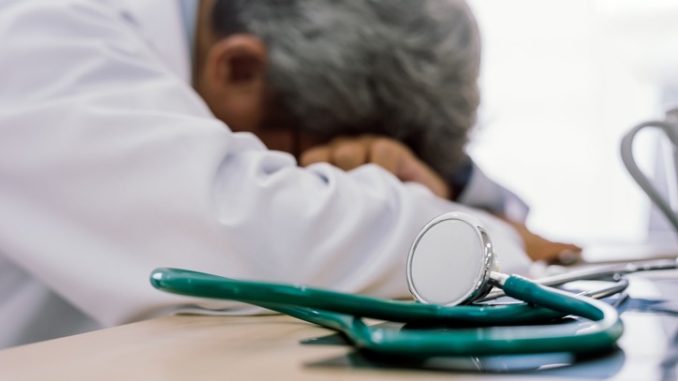
Part-time working for GPs is becoming commonplace, regulators say, raising concerns about the government’s drive to recruit extra doctors
This is an edited version of an article first published by BBC news.
Some 45% of GPs are working less than full-time, with a third cutting their hours in the past year, a General Medical Council survey indicated.
The poll also suggested more intended to follow suit amid rising workloads.
The regulator said it was essential to retain more full-time GPs if numbers were going to rise.
The findings – part of an annual report into the entire medical workforce – come after the government promised to recruit extra GPs, as part of their election campaign.
It has set a target to recruit 6,000 extra GPs by 2025 in England.
Conservatives pledge to boost GP numbers
But GMC chief executive Charlie Massey said while more GPs were coming through training, it was not enough to keep up with demand.
“The clinical work of GPs is changing,” he said
“They’re seeing more patients, many with complex needs and some who have high expectations of what primary care can do for them.
“To break this cycle of workforce shortages we need a clear plan, in all four countries of the UK, for a sustainable increase in the number of GPs.”
In 2015, the government in England set a target of increasing the number of full-time equivalents by 5,000 by 2020. But latest figures show the numbers have hardly changed.
The survey of nearly 3,900 doctors – more than 1,000 of whom were GPs – suggests GPs are the most likely to work part-time as well as the most likely to report dissatisfaction with their working lives.
Rising workloads and patient expectations were cited as key reasons, with one in 10 having to take time off work because of stress. Nine in 10 also reported working extra hours beyond what they were contracted to work.
Professor Martin Marshall of the Royal College of GPs said the profession should not be criticised for this.
“Working ‘full-time’ in general practice is simply not doable for many,” he said.
But even when doctors reduced their hours, they may still be contributing to patient care in others through education, research or leadership roles.
The government in England has promised to further increase the number of GPs being trained, do more to improve retention and recruit from abroad.
Don’t forget to follow us on Twitter, or connect with us on LinkedIn!

Be the first to comment